Uncategorized
-
 Science & Society
Science & SocietyFinalists chosen to compete in the 2015 Intel Science Talent Search
Teens from 18 states will soon face off in the finals of the 2015 Intel Science Talent Search, the nation’s most prestigious science research competition for high school seniors.
By Sid Perkins -
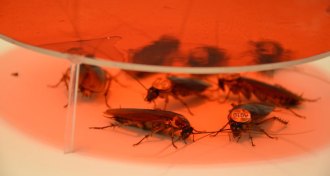 Animals
AnimalsCockroach personalities can speed or slow group decisions
The mix of temperaments in an alarmed cluster of cockroaches changes how quickly they make group decisions.
By Susan Milius -
 Humans
HumansBaby brains undergo dramatic changes in utero
Developing human brains experience more than 28,000 changes in a molecular process that governs gene activity.
-
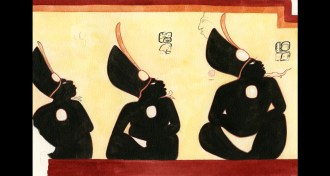 Anthropology
AnthropologyAncient Maya bookmakers get paged in Guatemala
New discoveries peg ritual specialists as force behind bark-paper tomes and wall murals.
By Bruce Bower -
 Physics
PhysicsWhen entering a black hole, fasten your seat belt
Rapidly spinning black holes can generate turbulence, a new analysis shows.
By Andrew Grant -
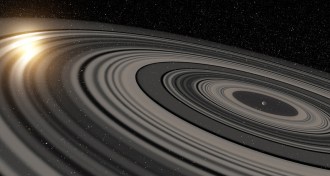 Astronomy
AstronomyGiant rings encircle young exoplanet
Stretching 90 million kilometers from their center, 37 stripes of dust around exoplanet were probably crafted by moons.
-
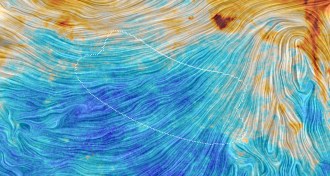 Cosmology
CosmologyDust erases evidence for gravity wave detection
The claimed detection of primordial gravitational waves does not hold up after taking into account galactic dust, a new analysis concludes.
By Andrew Grant -
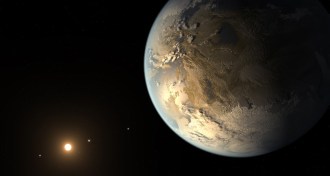 Astronomy
AstronomyNeptune-like worlds could become habitable
Mini-Neptunes can drift toward their stars and lose their atmospheres, leaving behind ice-rich rocky cores that can become watery worlds.
-
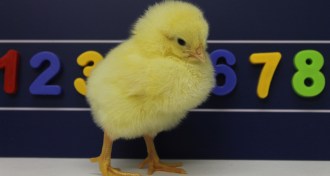 Neuroscience
NeuroscienceChicks show left-to-right number bias
Recently hatched chicks may have their own version of the left-to-right mental number line.
By Susan Milius -
 Genetics
GeneticsPregnancy in mammals evolved with help from roving DNA
DNA that “jumped” around the genome helped early mammals shift from laying eggs to giving birth to live young.
-
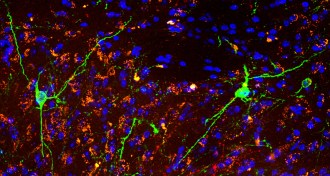 Neuroscience
NeuroscienceNewly identified brain circuit could be target for treating obesity
In mice, specific nerve cells control compulsive sugar consumption, but not normal feeding, hinting at a new therapeutic target for treating obesity.
-
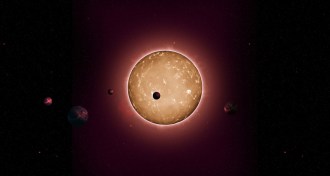 Astronomy
AstronomyOldest solar system unearthed by Kepler
Five rocky planets orbit the 11.2-billion-year-old star Kepler 444, suggesting that Earth-sized worlds formed in the early universe.